Iran Says Talks Over A Prisoner Swap 'On The Agenda In Vienna'
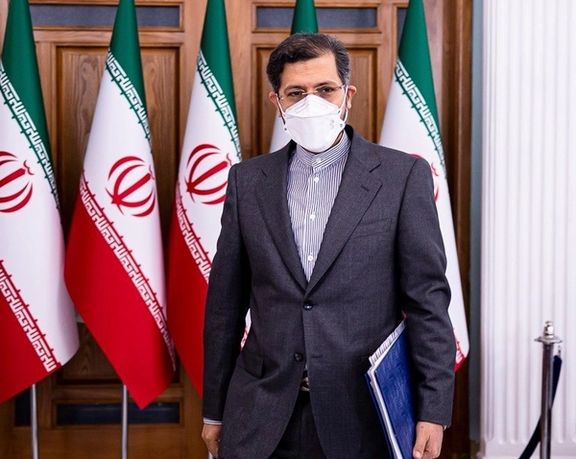
Iran's foreign ministry spokesman said on Monday that a prisoner swap with the United States was on the agenda in parallel with the nuclear talks in Vienna.

Iran's foreign ministry spokesman said on Monday that a prisoner swap with the United States was on the agenda in parallel with the nuclear talks in Vienna.
"This issue is currently on the agenda in parallel with the Vienna talks.... But it seems that the US has not made a decision on it. Perhaps it is waiting for the results of the talks," said Saeed Khatibzadeh.
This is the first time that an Iranian official says official talks over foreigners and dual nationals detained in Iran with the United States have been on the agenda in Vienna. Tehran has refused to directly negotiate with Washington since nuclear talks began last April in Vienna.
Iran is holding several Western prisoners in what human rights organizations have dubbed hostage diplomacy. As in past instances, Tehran is demanding the release of Iranian detained in the US for breaking sanctions laws and related offenses.
European powers, the European Union and Russia are shuttling between the two sides, while there have been more calls in Iran to negotiate directly with the US.
Khatibzadeh also said that the nuclear talks have not “reached a dead end.” Ten months after negotiations began still major issues of which US sanctions should be lifted and how Iran should return to its obligations under the 2015 nuclear agreement remain unresolved.
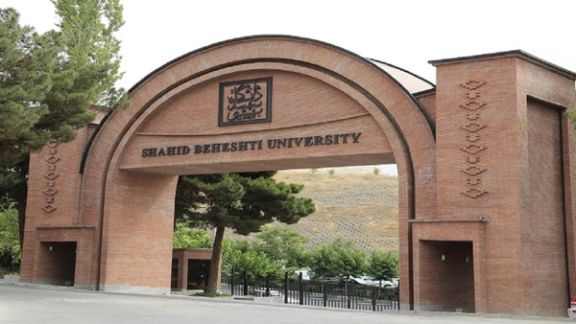
More than one hundred Iranian academics from around the world have condemned recent firings of professors in Iran, calling it an intensification of suppression.
In an open letter, 105 academics, mostly from American universities said that recent layoffs of professors from Iranian universities were political in nature and cannot be justified on scientific or professional grounds.
The letter followed news in January that at least three professors were fired from their jobs. Sociologist Mohammad Fazeli, professor of philosophy Arash Abazari and social science lecturer Reza Omidi got the pink slip without a clear explanation. Each had excelled in their field. Abazari is well-known for his book Hegel's Ontology of Power: The Structure of Social Domination in Capitalism, which was published by Cambridge University Press. Fazeli’s works focus on sociology of politics and science, especially in the energy sector.
On Saturday, news emerged that Islamic Azad University in Iran has fired more than 300 professors and lecturers and is planning to fire 1,500 more from its campuses around the country. It is not clear whether this is related to financial pressure amid Iran’s economic crisis or a way to politically “cleanse” the academia.
The academics residing outside Iran said in their letter that based on the academic credentials of the professors in Iran, “it is clear that the firings cannot be justified.” The quality of their scientific research was not the reason for the decisions. The policy to fire professors is the result of “intolerance and lack of respect for academic freedom.”
The letter demanded the “unconditional return” of the professors to their posts, so that they can continue to serve the society and their students.
Among the academics who signed the letter there are Professors of Emeritus from Yale University (Abbas Amanat), Pace University (Reza Afshari), City University of New York (Ervand Abrahamian), Bennington College (Mansour Farhang) and many others.
Other academics of Iranian descent from the United Kingdom, France, Denmark, Sweden Holland, Switzerland and other countries have also signed the open letter.
The letter does not name any of the professors fired in Iran, not to endanger their security. The Islamic Republic will probably retaliate against them if their name comes up in a context of criticizing the clerical government. Universities in Iran are controlled by the government and decisions to fire professors are suggested or approved by bureaucrats.
Dr Kazem Alamdari of California State University, Northridge told Center for Human Rights in Iran that “We did not want to endanger the professors in Iran, but we wanted to speak out about this, because we believe that putting authorities under the pressure of public opinion is most impactful approach.”
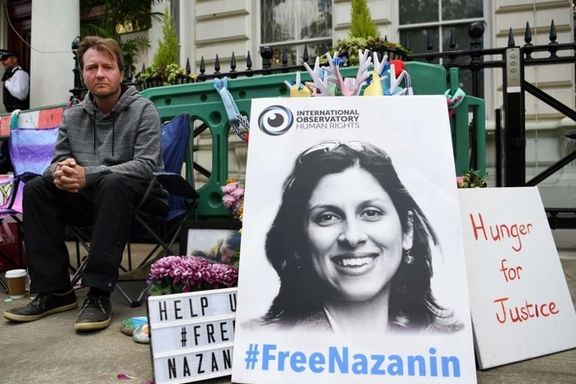
Husband of British-Iranian charity worker Nazanin Zaghari-Ratcliffe, who is detained in Iran, demands transparency from the UK authorities about a deal to bring her home.
According to a Guardian report on Sunday, Richard Ratcliffe said his wife is “very, very angry” after learning about the collapse of a deal. Zaghari-Ratcliffe was arrested in Iran in April 2016 and spent five years in prison. She is now out of prison but not allowed to leave the country.
He husband says she fears she is a “bargaining chip” in ongoing nuclear talks and is filled with “anger at her life being stolen” and the government’s “lack of urgency” in securing her release.
MPs were told the UK had signed an agreement to secure her release in the summer, but that the deal had fallen through. The UK government has not revealed why the agreement fell apart, but there are fears it is linked to nuclear negotiations with Iran.
Britain is understood to have agreed to repay a £400 million debt it owes Iran relating to an abortive deal to export British armaments in the 1970s.
“I could have been home last year. Why am I still here? They have ruined my life, day by day, for six years. Where is [Johnson’s] urgency? I just want to come home,” the husband quoted her as saying.
Rights groups accuse Iran of holding dual-nationals as bargaining chips for money or influence in negotiations with the West, something Tehran denies.
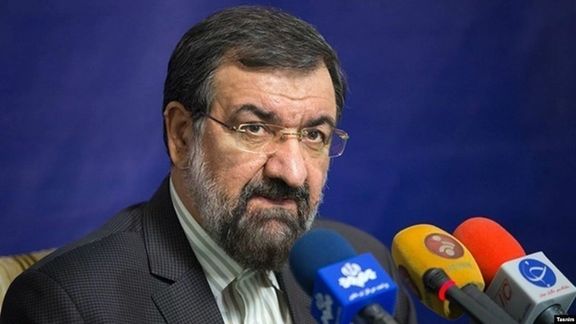
Iran’s vice president for economic affairs says there are many domestic problems that are hindering the country’s progress more than the Western sanctions.
On the sidelines of an exhibition titled Achievements and Capabilities of the Jihadi Management on Sunday, Mohsen Rezaei told reporters that the biggest obstacles the economy faces are not imposed from the outside but stem from the internal problems, which he called “domestic sanctions.”
Rezaei described cumbersome and bureaucratic regulations, contradictory and inefficient laws and corruption in the country’s administrative system as the domestic sanctions that are “10 times more detrimental” to Iran’s businesses and industries.
He noted that economic reforms are the only way to get past these hindrances, adding that the current administration has started with trade reforms and then will pursue monetary reforms.
Rezaei added that the people should not feel the pressures of government’s budget deficit while they are also suffering from high tax rates as well as inflation.
The long process to get government permits to do business, lack of a good legal framework in the country, and unfair taxation are the main elements leading to unfavorable conditions in the country’s production sector.
Iran faces serious problems in three major indicators: Economic growth, the rate of inflation and the unemployment rate.
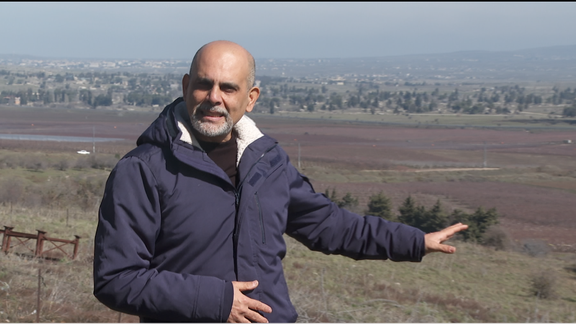
Iran bought large tracts of land close to the Syrian Israeli border in recent years and is settling Shiites to threaten Israel, Iran International has learned.
Taking advantage of a destructive civil war in Syria and the ensuing poverty, as well as migrations, Tehran has launched a plan to settle Shiites next to Israel’s northern border, Iran International’s correspondent in Israel reported.
The plan is to settle as many Iranian, Lebanese, Afghan and other Shiites as possible in towns and villages around the Golan Heights. Two areas in particular are Sa’sa and Qarfa where the Revolutionary Guard (IRGC) has enticed loyal Shiites to settle. Many young people in these areas, very close to Israel, are now members of Iranian-backed militia groups, such as Hezbollah or the Afghan Fatemiyoun Brigade.
These forces have been fighting under IRGC command for almost a decade in Syria to keep Bashar al-Assad in power, and when the war turned against rebels, the Iranian military moved closer to the Israeli border.
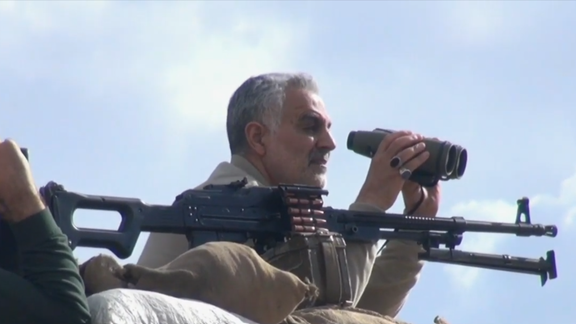
The United States and Israel in 2017 began putting pressure on Russia, that wields a lot of influence in Syria, to force Iranians to withdraw from the border, and there was talk of a 20–40-kilometer zone free of Tehran militias. But according to information available to Iran International, the arrangement was never fully implemented.
The Lebanese Hezbollah’s Southern and Golan commands are now well-established in the area, in addition to IRGC’s Qods (Quds) Force unit 840.
Settling Shiites near the Israeli border could be a long-term plan by Iran to prevent any such deals between Russia, the US and Israel to have any real impact. Tehran can always argue that it has no military presence in the area, while Shiite settlers would in fact be fighting forces anytime Iran wants to stir up trouble.
The situation on the ground can easily turn into what exists in Southern Lebanon, where an indigenous Shiite population lives, dominated by Hezbollah and facing Israel, which poses a serious threat.
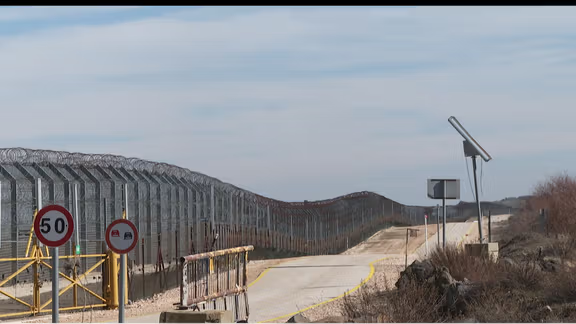
Our information also indicates that the Qods forced some Syrians living near Israel to place explosives next to the border security wall to injure or kill Israeli troops, in exchange for $20 for each improvised device.
It is not exactly clear how many settlers Iran has succeeded to bring to the area, but sources say they number in a few thousand.
Israeli sources say that it is Iran’s “dream” to create a threat belt against Israel in Syria, but so far, they claim the cost has been coffins returning to Tehran. Israel has conducted hundreds of air strikes against Iranian bases and weapons depots in Syria, with post-attack reports indicating that at least a few IRGC personnel were killed in each strike.
Israeli sources also say that they have more “surprises” in store for Iranian forces and believe that Qasem Soleimani’s killing by the United States in 2020 played an important role in slowing down Iran’s projects in Syria.
Amid these developments and tensions, the position of Bashar al-Assad is not clear. He has been trying to improve his ties with wealthy Arab states to secure needed financial assistance for rebuilding his devastated country. For him it is crucial to secure his hold over the country and appease the bitterly divided population with reconstruction. Iran’s adventures will harm this objective, but Assad might not be in a position at this time to stop his Shiite saviors unless Russia decides that Iranians should leave Syria.
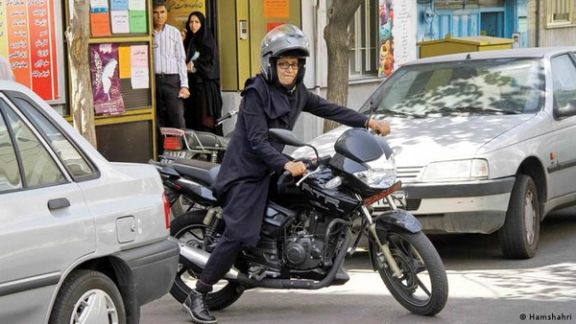
Iran intends “to organize and regulate” the use of motorcycles in Tehran and will “seriously deal” with those who have no motorcycle license, such as women.
Tehran’s Police Chief Brigadier General Hossein Rahimi announced the scheme on Sunday, saying that as of February 19, about 100 checkpoints will be set up across the city so no one can ride motorcycles in Tehran without a license.
The plan seems like a pretext to crack down on women who have been increasingly using motorbikes although it is frowned upon by the country’s hardliners while they are not even allowed to get driving licenses for motorcycles.
Law enforcement officials say riding motorbikes is illegal for women because according to law only men can apply for such licenses. They say any change in the regulations should be made in the parliament.
The country’s fundamentalists have also repeatedly expressed opposition to women riding bicycles, let alone motorcycles.
In 2017, Iranian media reported that two young women had been detained in Dezful in southwestern Iran after they were filmed riding a motorcycle.
In the same year, a female-only motorcycle track opened outside the capital as women have been allowed to practice on private circuits.